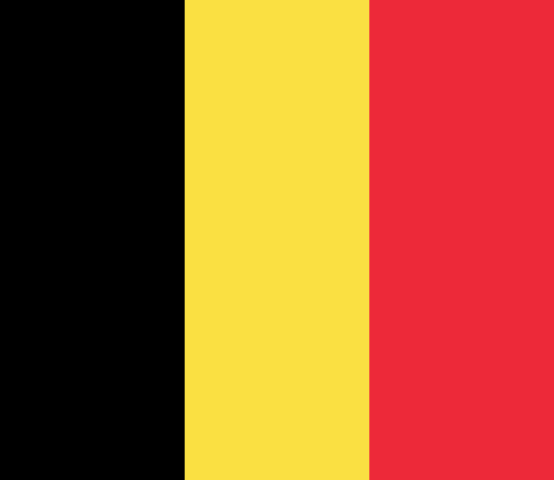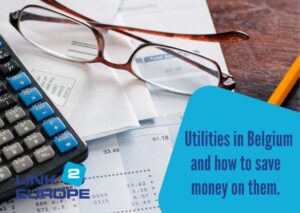Quick wins on gas, electricity, internet and telecom which will save you money in the long run.
The end of the coronacrisis is not yet in sight, but the trust in the vaccination campaign has led businesses to look on the bright side. Everywhere across Europe, entrepreneurs are regaining their fighting spirit, making economies boom again. Unfortunately, this upside has a downside in the rising utility prices.
Together with the cold temperatures in early May and the low inventory levels and limited supply from Russia, the gas prices skyrocketed. And the same is true for the electricity bill. The reboot of the economy and the lack of wind begin July made for a serious increase of the price per kilowatt hour. And once the utility prices go up, everything else follows.
Understanding your gas and electricity bill
To understand your Belgian gas and electricity bill, you need to break it down first. The monthly fee you are charged isn’t in fact a monthly fee. It’s more of a down payment on the bill that follows at the end of your (yearly)contract. The prices of your contract can also be set up in one of two ways. There is a fixed rate contract and a variable rate. Depending on the situation of the European economy, one is more profitable than the other, but we will come back to that when we give you some tips on how to save money on your fixed charges.
The first defining factor which will make up how much you need to pay is your average consumption and the price per kilowatt-hour. The average consumption of a Belgian household per year, for a small household is 1200kWhs, a medium 3600 and a large household 7500. The average cost of electricity in Belgium for the first half of 2020 was 27,92 euro cents per kWh. If we look at gas, the average yearly consumption is 2326kWhs for a small household, 12728 for a medium and 23260 for a large household. The average cost was 4,96 euro cents. Which makes the total prices for both 450,41 euro per year for a small household, 1636,43 euro per year for a medium household and 3247,7 euro per year for a large household. Taking into account that the price per kilowatt-hour for gas has increased with 70% and electricity has increased with 35%, you can start to see why some saving tips could be much appreciated.
The second defining factor is the transportation and distribution costs. These are set by your distribution and transmission supply network operator and are added to your invoice. Transmission costs allow electricity and gas to be transported from their point of production to the distribution network, and distribution costs cover the route energy takes through the network to the point of consumption. You can’t save on these costs because they are the same across all providers for every type of household.
The third factor are the taxes set by the federal and regional governments. They can be as high as 21% VAT. Again, these taxes are the same across the entire region, so apart from moving to a region with lower taxes, you can’t save on this component.
Ready to save some money?
There are different ways to save on the bills of your fixed charges in Belgium. Some require an investment (like installing solar panels) but most are small quick wins, which can help you save money in the long run.
- Take care of draft. You can buy self-adhesive draft tape to fix to the gaps between your windows and the walls. This quick fix keeps the warmth in and the cold out.
- Ventilate. Make sure you ventilate your house from time to time to get rid of unwanted moisture. A dry house will heat up much quicker than a moist one.
- Switch to LED light bulbs because these are 85% more economical than regular ones. If you don’t have a big budget, start with those lights which you use the most, such as the ones in the living room and the kitchen.
- Don’t leave your electrical devices on stand-by, but switch them off. Typically, your TV, digicorder, electric toothbrush, baby phone, coffee machine and chargers, which you leave plugged in, are all kept on stand-by in which they use a small amount of energy even if you are not currently using them. This small fix could save you around 100 euros a year.
- Turn down your thermostat by one degree. You probably won’t feel the difference, but your bill does!
- Close your curtains at night, especially if you have single glazed windows. This added barrier keeps out most of the cold at night. On the other hand, open your curtains as soon as possible on sunny days to help heat up your house with sunlight.
- Only put on a washing machine when you can completely fill it and let your clothes dry on a drying rack instead of tossing them into a dryer. A dryer costs you about a euro every time it is switched on. Do the math on how much this simple trick can save you in a year.
- Always close your freezer and refrigerator as soon as possible. A constant temperature requires less energy. The same goes for your house. Keeping the thermostat at 15 degrees during the night is more economical than turning it off. Having the temperature drop very low and then having to reheat to an accepted amount requires a lot more energy.
- Take note of the energy label if you need to buy a new electrical device. Devices with a better energy label might cost you more now, but they will save you money in the long run. Especially with prices like the ones we are seeing today.
- Place plants and bushes against the cold side of your house. These will protect the outside of your home from wind, making sure less heat can escape through that side.
- Compare providers. The Belgian energy and gas market has many players. Some come with added benefits such as green energy, and some are just a tad bit cheaper than the others. The price per kilowatt-hour isn’t set, so each provider is free to make up their own pricing. There are many sites where you can make a simulation of your situation. This simulation will also help you in deciding whether a fixed or variable contract is suited for your household.
Extra tip: Depending on where you live, your commune might have a designated official whose job it is to help households save on their bills. Contact your commune and find out!
What about the other bills?
And then there are the other bills for services which you simply can’t do without. Services like internet and telecom. The tip on comparing providers, which was true for gas and electricity, is the same here. One provider isn’t the other one. Know what you need and what you don’t need. Do you really need unlimited data if you mostly use Wi-Fi at home? Why pay for minutes spend in calls when you don’t telephone anyone? Knowledge is power, and you can easily compare providers with that knowledge on sites like this one.
Another important thing to know is that you can switch freely and without any charges from one provider to the next. So do keep an eye on interesting promotions.
Lastly, consider buying a simple prepaid sim card for your telecom expenses. When you first arrive in Belgium, you might not have many contacts you need to call, and you can always communicate with the home front through Wi-Fi and apps such as WhatsApp, Messenger and Facebook. In this case, pay as you use could turn out to be a lot cheaper!




